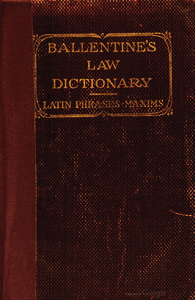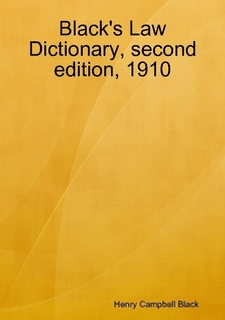Implied assent.
Definition of Acquiescence
-
Ballentine's Law Dictionary
-
Black's Law Dictionary: 2nd Edition
Acquiescence is where a person who knows that he is entitled to impeach a transaction or enforce a right neglects to do so for such a length of time that, under the circumstances of the case, the other party may fairly infer that he has waived or abandoned his right. Scott v. Jackson, 89 Cal. 258, 26 Pac. 898; Lowndes v. Wicks, 69 Conn. 15, 36 Atl. 1072; Norfolk & W. R. Co. v. Perdue, 40 W. Va, 442, 21 S. El 755; Pence v. Langdon, 99 U. S. 578, 25 In Ed. 420. Acquiescence and laches are cognate but not equivnient terms. The former is a submission to, or resting satisfied with, an existing state of things, while laches implies a neglect to do that which the party ought to do for his own benefit or protection. Hence laches may be evidence of acquiescence. Laches imports a merely passive assent, while acquiescence implies active assent. Lux v. Haggin, 69 Cal. 255, 10 Pac. 678; Kenyon v. National Life Ass'n, 39 App. Div. 276, 57 N. Y. Supp. 60; Johnson-Brinkman Commission Co. v. Missouri Pac. R. Co., 126 Mo. 345, 28 S. W. 870, 26 L. R. A. 840, 47 Am. St. Ren. 675.

